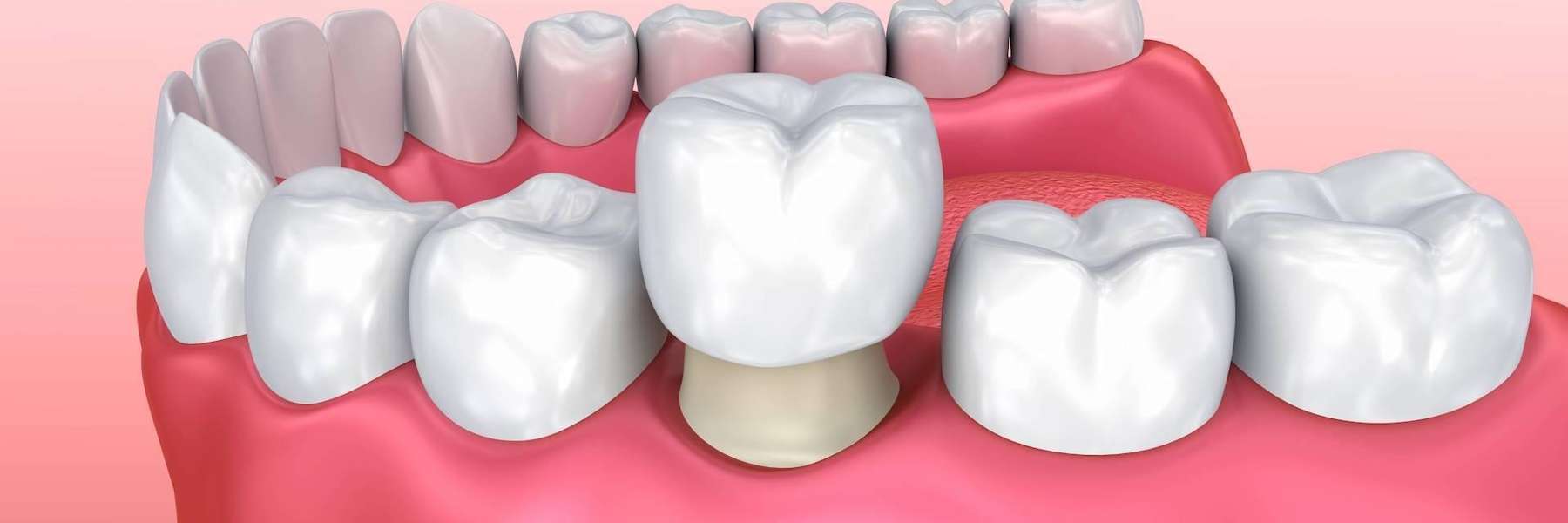
Whether as protection for severely damaged teeth or atop a dental implant as a long-term tooth replacement, dental crowns are a pillar of restorative dentistry. These most versatile dental restorations offer strength, durability, and a natural appearance.
Let’s take a closer at these restorative marvels – what they are, different types of crowns, their many benefits, and tips for maximizing their effectiveness.
What Is a Dental Crown?
Dental crowns (or “caps”) are custom-made dental restorations designed to cover and protect damaged or weakened teeth. A crown resembles a natural tooth in appearance and replaces its functionality, providing strength and durability.
Crowns can be made from a variety of materials. Each of these is suited to certain needs, circumstances, and preferences.
- Porcelain – Natural-looking with a lifespan of 10-15 years.
- Porcelain-fused-to-metal – The aesthetics of porcelain and the durability of metal, with a lifespan of 15-20 years.
- Ceramic – Another excellent aesthetic choice, this one with a 15-20-year lifespan.
- Metal – The least aesthetically appealing option but incredibly durable, with a typical lifespan of two decades, if not more!
Dental crowns are typically used to encase teeth that are too severely compromised by decay or injury to be restored with a filling but still have healthy roots. By covering the portion of teeth above the gumline, crowns restore their shape, size, and appearance and protect them from further damage. Dental crowns are also popular as tooth replacements for post-tooth patients with dental implants.
The Benefits of Dental Crowns
Dental crowns serve a variety of restorative purposes. Here are a couple of the most significant:
- Dental crowns restore the shape, strength, and function of a tooth. By enabling normal biting and chewing, they promote healthy digestion and nutrient absorption.
- Crowns protect damaged teeth from the dangers of breakage or infection.
- Crowns enhance the appearance of misshapen, discolored, or poorly aligned teeth, or fill the gap in a person’s smile created by a missing tooth.
Tips for Maximizing Dental Crown Lifespan
Here are a few tips to help ensure the longevity of your dental crowns:
- Practice excellent oral hygiene to prevent decay and disease in the teeth and gums underneath a crown.
- Avoid hard or sticky foods, which can damage or dislodge a crown.
- If you grind your teeth while sleeping, wearing a night guard to bed can protect your crowns from wear.
- Visit the dentist regularly for routine examinations and cleanings.
- If you notice any discomfort or signs of damage, seek dental care immediately.
Precisely Placing Dental Crowns in Topeka, KS
If you’re in Topeka, KS, and want to learn more about the many benefits of dental crowns, which type of crown is best suited to your needs, and how to maximize their lifespan, contact Dr. Carrie B. Peterson and the outstanding Topeka Dentistry team to schedule a consultation!
